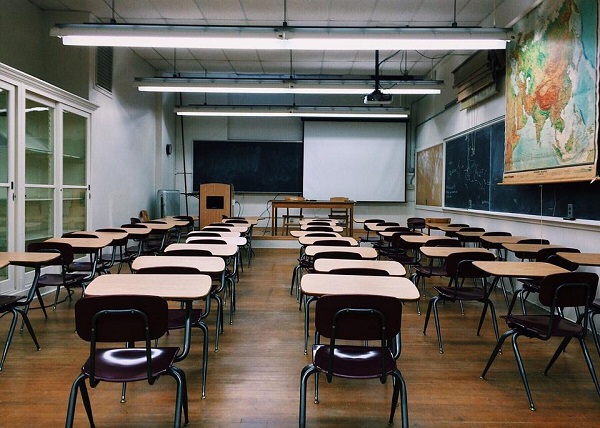BALTIMORE, MD—The Maryland State Department of Education this week announced it is joining the National Partnership for Student Success. This collaboration, championed by Governor Wes Moore and State Superintendent Mohammed Choudhury, highlights Maryland’s commitment to academic recovery and acceleration, statewide student success, particularly those who have been historically underserved, and to the use of evidence-based, people-powered and community-connected supports.
“With the creation of the Maryland Tutoring Corps, Governor Wes Moore and his administration are setting a national example for how states can use American Rescue Plan funds to Raise the Bar for students’ learning recovery,” said U.S. Secretary of Education Miguel Cardona. “By joining the National Partnership for Student Success, Maryland is responding to President Biden’s call for states, districts, and community partners to collaborate intentionally and stand up evidence-based, high-quality student support programs, including tutoring, that can help students recover academically in critical areas like math and get back on the road to success.”
The Biden Administration has urged states, school districts, and colleges and universities to partner together to support our students, including through high-impact tutoring initiatives. The Maryland Tutoring Corps does just that. With this investment, MSDE has the potential to serve more than 60,000 students and recruit more than 800 tutors in the initial grant phase.
The Maryland Tutoring Corps is an innovative, highly competitive grant opportunity that seeks to harness remaining one-time American Rescue Plan Funds (ESSER III) for a substantial investment in launching and scaling high-quality, school day tutoring for secondary math that will mitigate long-term learning loss resulting from the COVID-19 pandemic.
“Through participation in the National Partnership for Student Success and the launch of Maryland Tutoring Corps, we are strengthening our commitment to service and educational excellence for all Maryland students,” said Governor Moore. “By joining forces with experienced organizations and passionate individuals, Maryland will foster a transformative educational environment that empowers students to overcome challenges, excel academically, and thrive in the future.”
“We have witnessed the profound impact of the pandemic on our children’s education, especially in math proficiency. But we refuse to accept the status quo,” said State Superintendent of Schools Mohammed Choudhury. “Math proficiency was trending downward even before the pandemic. We must take action. With the power of our remaining ESSER funds, we have the opportunity to enact lasting change in secondary math proficiency. This is not a momentary reaction to the challenges we face; it is a strategic investment in the future. Our goal is to seed a long-term, evidence-based math intervention that will provide ongoing support via a permanent tutoring corps to students who need it the most. By doing so, we can empower them with the tools and knowledge to thrive academically and transform their educational journey for years to come.”
Grants will be awarded for work that prioritizes secondary students who are not proficient in math, particularly middle school students in grades 6-8, Algebra students of any grade level, and historically underserved students such as African American students, economically disadvantaged students, English learners, and students with special needs. The grant program’s purpose is to seed the establishment of a permanent tutoring corps program, one that is positioned to sustainably recruit, train, deploy, and support tutors to work directly with students who are not proficient in math.
MSDE will allocate up to $10 million in grants to local education agencies (LEAs) or a group of LEAs that collaborate with institutions of higher education (IHEs), non-profit partners, the governor’s Maryland Corps program, or county/city governments. These partnerships will work together to build the necessary systems for establishing a sustainable statewide tutoring corps. To amplify the program’s impact, the grants include a 2-1 match component, effectively tripling the total investment from $10 million to up to $30 million.
“The Maryland Tutoring Corps program, launched today, embodies not only our immediate response to the challenges amplified by the pandemic, but also an ambitious leap towards a future where every student’s potential is fully realized,” affirmed State Board of Education President Clarence Crawford. “Let our emergence from the pandemic be our moonshot – a century from now, we’ll look back at this moment as the turning point towards a brighter future.”
Fund Matching Component
The fund matching aspect of the Maryland Tutoring Corps grant program is one of the key components of the grant. This is designed to stimulate a partnership commitment from applicants in a collective effort to bolster the resources available for enhancing math proficiency, particularly for historically underserved groups.
Matching funds can originate from a variety of sources that are not strictly limited to local education agency resources, including private philanthropy, businesses, community organizations, or other nongovernmental sources of funding. This flexibility in funding sources is designed to allow applicants to tap into a broad array of potential funding streams, foster widespread community involvement in this critical initiative, and amplify the impact of each grant representing a shared investment in students’ futures.
MSDE encourages each applicant to seize this opportunity to magnify their contribution to improving math proficiency in Maryland’s secondary students and to establish a permanent program to deliver high-quality, school day tutoring for Maryland students, particularly those who have been historically underserved.
The application window will be open through August 15, 2023.
The National Partnership for Student Success
The National Partnership for Student Success is a research-based, locally-driven public-private partnership between the U.S. Department of Education, AmeriCorps, and the Everyone Graduates Center at Johns Hopkins University that helps schools, districts, nonprofits, and State and local governments create, expand, and improve evidence-based programs that support the academic recovery, mental health, and overall well-being of students. It specifically supports increasing the number of tutors, mentors, student success coaches, postsecondary transition coaches, and wraparound/integrated student support coordinators providing research-based supports to students that promote their academic recovery and overall well-being.
Photo via Pixabay
Do you value local journalism? Support NottinghamMD.com today.

